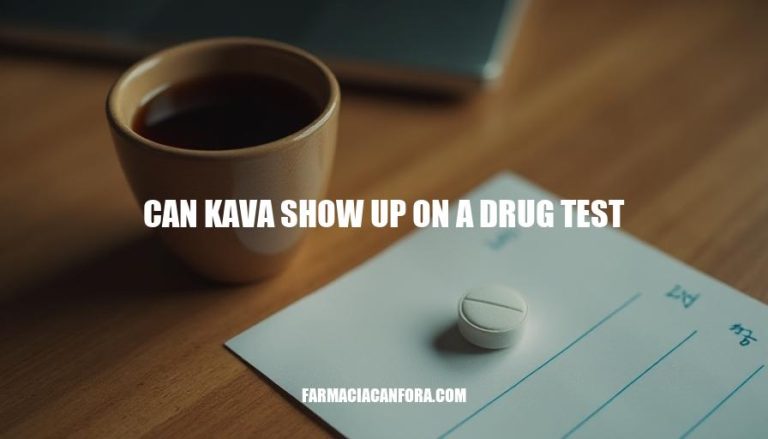


Kava is a traditional beverage made from the roots of the Piper methysticum plant, commonly consumed in the South Pacific for its calming effects. Recently, its popularity has spread globally as a natural remedy for stress and anxiety. However, some people worry that consuming kava might affect drug test results, raising concerns about potential false positives or its impact on liver enzymes.
Kava, derived from the root of the Piper methysticum plant, originates from the South Pacific Islands where it has been used for centuries in ceremonial and medicinal contexts. The name “kava” comes from the Polynesian word “awa,” meaning bitter.
Kava is primarily consumed for its relaxing and sedative effects, often used to alleviate anxiety, stress, and insomnia. The active compounds in kava are kavalactones, which affect the brain and central nervous system. These compounds are responsible for kava’s psychoactive properties, promoting relaxation and mental clarity.
Standard drug tests typically screen for substances like:
These substances are commonly abused and have significant psychoactive effects.
Kava is generally not included in standard drug tests because it is a legal dietary supplement, not classified as a controlled substance, and lacks the psychoactive effects typical of the substances usually screened for. Additionally, testing for kava would incur extra costs and is not commonly requested.
Kava has been reported to cause false positives on drug tests, particularly for amphetamines like MDMA. This issue seems to occur mainly with certain “dip” style urine tests. A study published in the Journal of Analytical Toxicology found that kavain, a compound in kava, can interfere with amphetamine immunoassays, leading to false positives.
There have been documented cases where individuals who consumed kava tested positive for amphetamines, but subsequent lab tests using more precise methods like gas chromatography-mass spectrometry confirmed the absence of amphetamines. This suggests that while initial screening tests might show false positives, confirmatory tests can accurately differentiate between kava consumption and actual drug use.
United States: Kava is not classified as a controlled substance at the federal level, but some states have restrictions or bans due to health concerns. It is generally not included in standard drug testing protocols.
Europe: Kava was banned in many countries in the early 2000s due to liver damage concerns but has since been re-evaluated and legalized in several countries with restrictions. It is not commonly tested for in drug screenings.
Australia: Kava is legal but regulated, with restrictions on importation and sale. It is not typically included in drug tests.
Canada: Kava is legal with some restrictions on its sale. It is not part of standard drug testing protocols.
Asia: The legal status varies; some countries like Japan have restrictions, while others allow its use. Kava is generally not included in drug tests.
Oceania: Kava is widely accepted and legal in many Pacific Island nations. It is not included in drug testing protocols.
Africa and the Middle East: Kava is banned in some countries like South Africa, while others have no specific regulations. It is not typically included in drug tests.
The varying legal status of kava impacts its inclusion in drug testing protocols, with most regions not including it in standard tests due to its legal acceptance and lack of psychoactive properties that are typically screened for.
Kava is a traditional beverage made from the roots of the Piper methysticum plant, commonly consumed for its calming effects.
It has been reported to cause false positives on drug tests, particularly for amphetamines like MDMA, due to interference with immunoassays. However, confirmatory tests using more precise methods can accurately differentiate between kava consumption and actual drug use.
Kava is generally not included in standard drug testing protocols due to its legal acceptance and lack of psychoactive properties that are typically screened for.
The varying legal status of kava impacts its inclusion in drug testing protocols, with most regions not including it in standard tests.